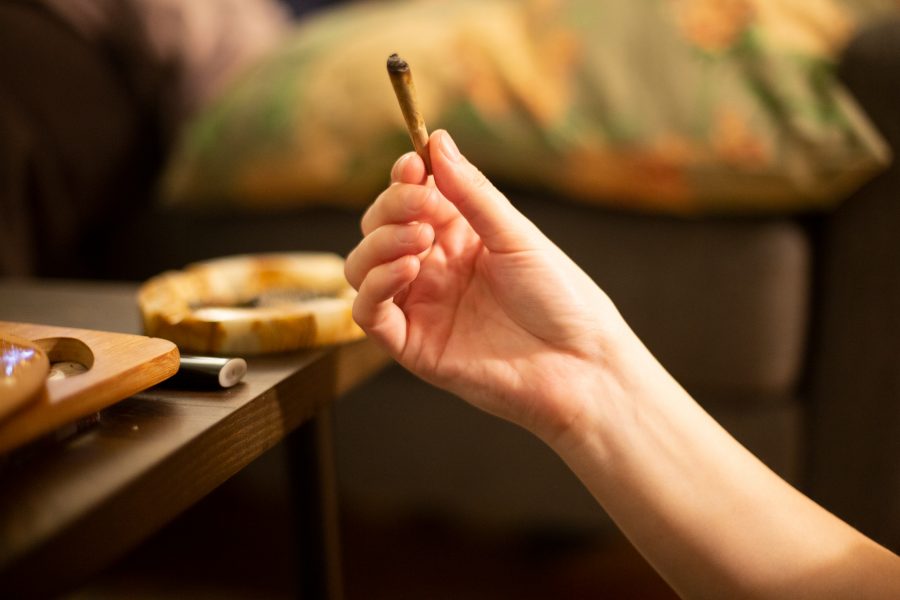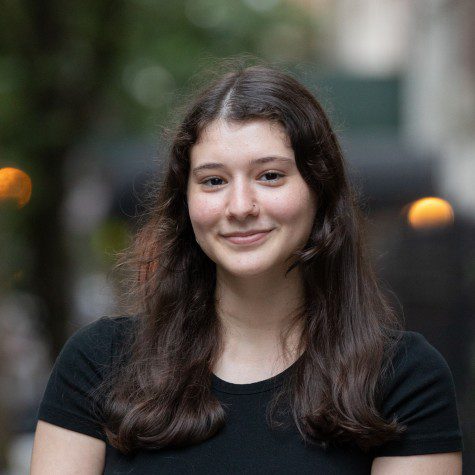Gov. Andrew Cuomo signed a bill into law to legalize the use of recreational marijuana for individuals aged 21 and older on March 31. The bill also expunged the records of those previously convicted for marijuana possession. Some portions of the bill will take effect immediately, but it may take up to two years to fully implement other portions.
The legislation aims to repair some of the damages that Black and Latine communities have suffered from the war on drugs. Accordingly, 40% of tax revenues from cannabis will go to the Community Grants Reinvestment Fund and 50% of producing and distributing licenses will go to minorities, women, distressed farmers and service-disabled veterans. The legislation also provides protections against discrimination for those who use cannabis in schools and colleges, public housing and the workplace.
Blake Phillips, a clinical assistant professor at the NYU Langone Medical Center who teaches a class on the science and psychology of cannabis, believes this legislation is long overdue. Phillips said it will open up avenues for conducting more cannabis research.
“I think cannabis is an incredibly important tool in the medical repertoire and is a life-changing medicine for many,” Phillips wrote in an email to WSN. “It’s not a panacea, though. And it’s not without problems. Research into the potential utility versus the potential harm in mental illness is still in its relative infancy. And results have been a mixed bag. I hope legalization will be a boon to efforts to research cannabis more thoroughly.”
Medical cannabis has proven to be a powerful tool in treating many medical conditions, such as Parkinson’s disease, post-traumatic stress disorder, inflammatory bowel diseases and chronic pain. As recreational cannabis becomes more widely available in New York, Danielle Zinman, executive director of the student group NYU CannaHealth in the Silver School of Social Work, hopes that those using medicinal cannabis continue consulting pharmacists to find what medicines work best for them.
Zinman argues that many who use cannabis, whether medically or recreationally, are, essentially, using it therapeutically. This is true for CAS senior Mandie Montes, who began using cannabis medicinally and therapeutically when they turned 21. (Montes previously worked as the managing editor for WSN’s Under the Arch.)
“I use weed medicinally for my anxiety and for my cramps that I get outside of my period,” Montes told WSN. “I have a lot of stomach issues. It’s been really beneficial for me.”
The legalization of recreational cannabis raises questions of affordability and accessibility. In other states where recreational cannabis is legal, people continued to buy cannabis illegally because of high prices, according to Zinman. She believes this will not be as big of an issue in New York, however, since the bill allows for home cultivation of cannabis.
“That’s really important because that’s the most affordable way [to consume cannabis] for patients and recreational users who, one could argue, are still using it for therapeutic use,” Zinman said.
Affordable access to cannabis is something that activists such as Zinman and Michelle Smoler, the director of social justice and innovation for NYU Wagner Graduate School of Public Service’s CannaPolicy club, believe is critical to creating more equitable medical care.
“There’s an affordable tax rate, which means that people will actually be able to purchase weed within the legal industry,” Smoler told WSN. “What we’ve seen in other states is that when tax rates are too high — because the state is interested in getting as much revenue as possible — people [continue to buy cannabis illegally].”
Steinhart senior Lauren Roche thinks legalization is long overdue because of the suffering caused by the war on drugs and the criminalization of marijuana, especially for people of color.
“No one stopped smoking weed; no one stopped buying it illegally,” Roche told WSN. “In the end, the legalization of marijuana finally helps the minority communities that are directly impacted by the law in regards to marijuana. White people really were never impacted by it.”
This legislation is a step towards repairing the racial injustice of the war on drugs, according to Phillips. He believes one of the bill’s most important results is the sociocultural implications, such as the erasure of drug-related crimes, which have disproportionately impacted people of color.
“For over a century now, a plant once commonly used as medicine in America has been steeped in racism,” Phillips said. “It has been used as a tool to suppress, marginalize and imprison. I hope this legislation will mark another step forward towards dismantling a deeply entrenched racist system.”
The bill will automatically expunge the records of those previously convicted for cannabis possession. Others, such as CAS sophomore Maia Villalba, wonder what happens to those currently incarcerated.
“I have very little hope the state will release them, which makes the matter even more saddening and contradictory,” Villalba told WSN. “We have to fight for their release, too.”
According to the governor’s press releases, the bill creates automatic resentencing for anybody with a previous conviction for cannabis possession.
Although the bill may not be perfect, cannabis activists like Smoler are excited because it places a heavy emphasis on repairing the damage done by the war on drugs.
“We’re really excited that [the bill] was passed the way it looks right now — where money is being set aside to invest in communities that were harmed,” Smoler said.
Email Rachel Fadem at [email protected].

























































































































































